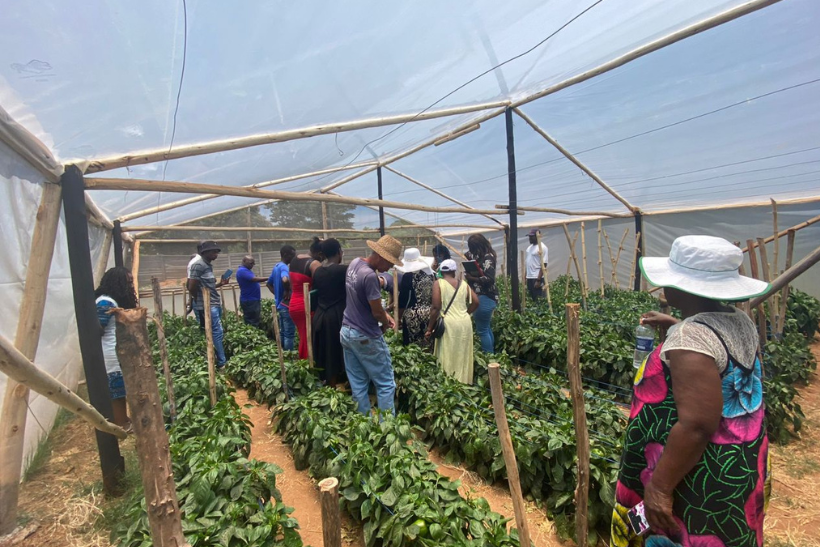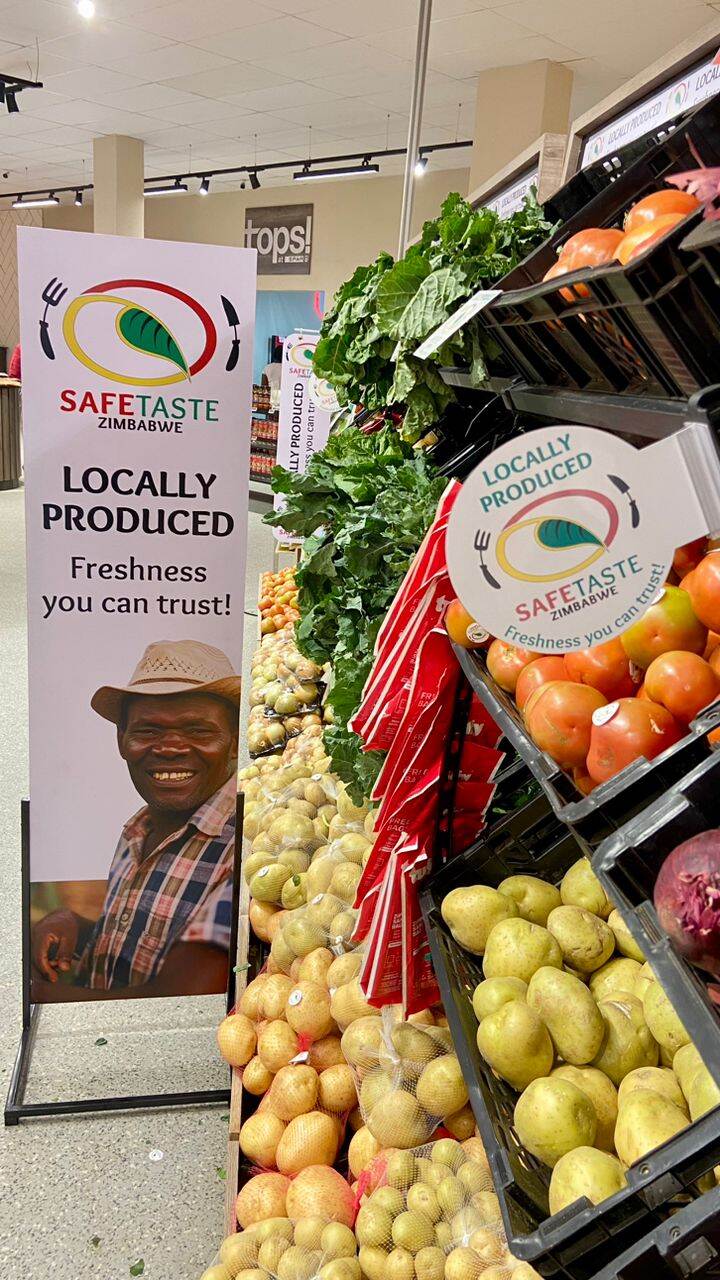Safe Taste Zimbabwe Protocol
Supporting the horticultural sector is one of the Netherlands’ priority areas for cooperation with Zimbabwe. That is why the Netherlands Enterprise Agency (RVO) has made a subsidy available to support capacity building for Local Good Agricultural Practices in horticulture. Safe Taste Zimbabwe Protocol is a result of a PSD Toolkit project that started in 2022.

Safe Taste Zimbabwe
In Zimbabwe, food safety remains a critical area for improvement. Whether you buy a tomato in the supermarket or at an open vegetable market, it is difficult to determine its origin and whether it has been safely and responsibly grown. Most farmers have a limited understanding of the use of food safety and coupled with the high cost of implementing safety standards most farmers cannot meet international certification requirements due to the high costs involved.
The Netherlands Enterprise Agency (RVO) made a subsidy available to support capacity building for Local Good Agricultural Practices in Zimbabwe's horticulture sector. In 2022, a PSD Toolkit project started resulting in the Safe Taste Zimbabwe Protocol.
The project was carried out by the Horticultural Development Council (HDC), Fairmark, Holland Greentech, Green Works Consultancy, and Delphy who has developed a feasible verification protocol for farmers in Zimbabwe. This protocol is specifically designed with criteria adapted to the local context, making them achievable for a large number of farmers. Despite these adaptations, the protocol still guarantees a high level of food safety.
Development of the protocol
The Safe Taste Zimbabwe Protocol enhances food safety without burdening farmers with unrealistic costs and requirements. The criteria within the protocol are carefully tailored to the local conditions and needs of the farmers, taking into account factors such as climate, available resources, and economic realities. This approach allows farmers to produce responsibly without incurring the high costs of international certification.
During the testing phase, farmers were able to meet the set criteria, demonstrating that the approach works and has the potential to be successful on a larger scale. The hope is that as the protocol is more widely adopted, farmers will not only be able to produce safer food but also earn a better income. This will improve their standard of living and contribute to the economic development of the country.

Collaboration with the retail and food processing sector
A unique aspect of Safe Taste Zimbabwe is the retail-driven nature of the protocol. This means that the retail sector plays an active role in managing and implementing it. Spar and OK Zimbabwe will be the first retailers to adopt the protocol and have placed products with the Safe Taste Zimbabwe label on their shelves. For widespread application, the government of Zimbabwe endorses Safe Taste Zimbabwe as part of HDC’s Hub and Spoke Business Model. This model integrates the label into the mainstream processing market effectively giving Safe Taste Zimbabwe broad acceptability. Recently HDC facilitated the Montgomery Processors that produces Monty’s Baked Beans’s outgrower scheme with Central Association of Cooperatives Union (CACU) a cooperative of more than 2000 members. This means that Monty’s baked beans aim to have their full production verified with the Safe Taste Zimbabwe label.
Other retailers are encouraged to join this initiative and also offer products with the Safe Taste Zimbabwe label. By expanding this effort, the project can have a broader impact, allowing more farmers to benefit and giving consumers access to safer food.
Positive change on a large scale
Safe Taste Zimbabwe addresses the urgent need for improved food safety in Zimbabwe. By providing a practical and achievable protocol tailored to the local context, farmers can produce safer food without unnecessary costs. With the support of the retail sector, this project has the potential to bring about significant positive changes for both farmers and consumers on a large scale.